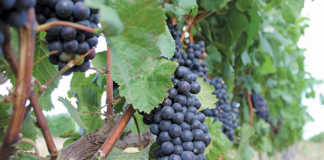The market recently announced that, for 2011/2012, it managed a 10% increase in turnover from R3,8 billion in 2010/2011 to R4,18 billion in 2011/2012. This means the market made a pre-tax profit of R53,3 million. According to market spokesperson Thomas Mawasha, the total volume of fruit and vegetables sold increased from 1,14 million tons the previous year to 1,15 million tons.
He said more than 5 000 farmers use this distribution channel, while the market has more than 1 000 buyers, including retailers, wholesalers, exporters, processors and informal traders. Reuben Denge, the market’s acting CEO, said stakeholders, such as the farmers, market agents and most buyers, should be commended for this achievement.
“The turnover augers well for the city of Joburg’s 2040 Strategy which, among other critical issues, talks about the need to reduce poverty and malnutrition in the city,” he said. According to Ronald Ramabulana, National Agricultural Marketing Council CEO, the increase in turnover means that, unlike in developed economies, where farmers sell fresh produce directly to retailers, by-passing fresh produce markets, in South Africa these markets continue to grow.
“This is possible because the market is able to provide a much better service to various retailers who source from the market,” said Ramabulana. He also said it’s a sign that the volume of exports to neighbouring countries is continuing to increase. However, Ramabulana said that, the growth in volume of sales aside, there remain challenges. “We must ensure that we remain on top of food safety issues,” he said.
SA must use the market effectively as a tool for transformation in order to sustain growth and the industry. “We also need to increase the volume of sales from small farmers, ensure that black agents succeed, and ensure that hawkers, who buy over 30% of the market’s produce, grow their business,” said Ramabulana.











